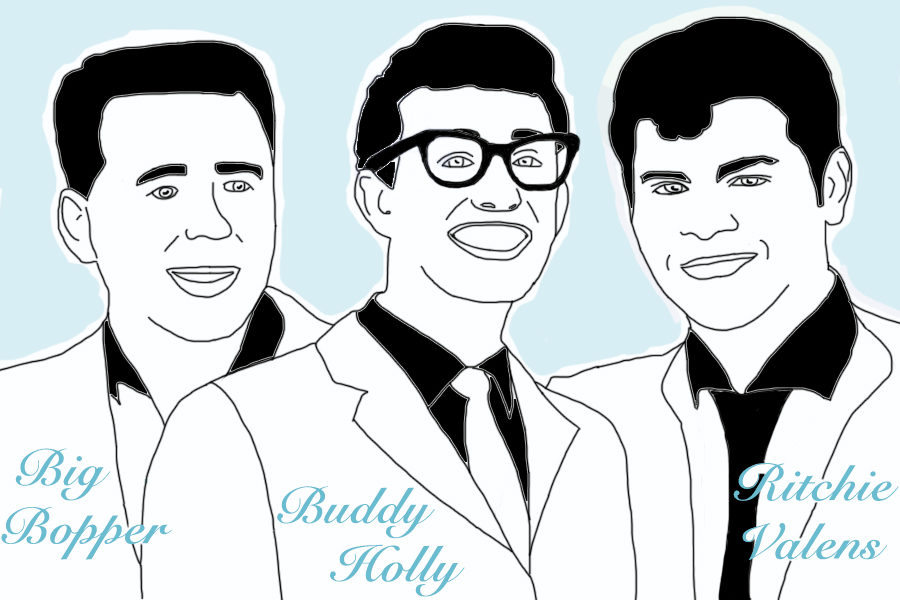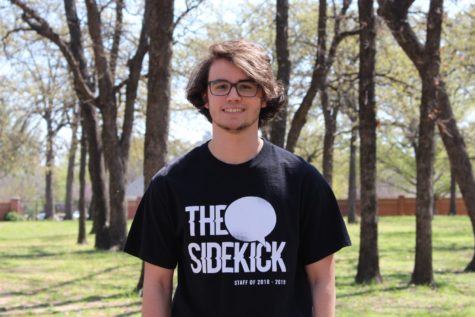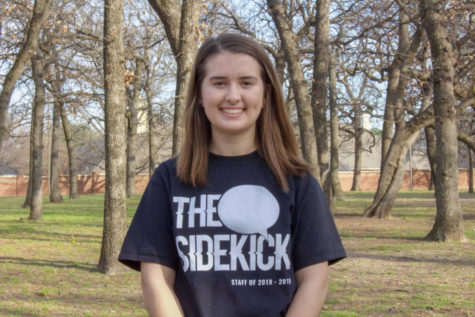The day the music died
Airplane wings rust, grass grows, Buddy Holly continues to shape American music, long after death
On February 3 1959, three legendary rockabilly stars, Buddy Holly, Ritchie Valens and the Big Bopper, were killed in a plane crash. Feb. 3 was the 60th anniversary of the tragic event, which is also commonly referred to as “the day the music died”.
February 8, 2019
This past Sunday marked the 60th anniversary of the day a fiery plane crash in Iowa took the lives of three of rock ‘n’ roll’s most influential pioneers: Ritchie Valens, J.P. “The Big Bopper” Richardson and Buddy Holly.
Feb. 3 is known as “the day the music died” around the world, a name first coined by folk rock singer-songwriter Don McLean in the title track of his 1971 LP American Pie. But even today, Valens, Richardson and Holly continue to influence musicians across the world.
According to Spotify, 1,064,739 users stream Holly’s music per month, which goes to show he lives on – six decades after his death – through the music.
Because his death was 60 years ago, in 1959, there are not many people who personally recall The Crickets’ – Holly’s band – rise to stardom and Holly’s untimely death, but one close friend of Holly’s and former guitarist for The Crickets still remembers the music before it died.
“Buddy was a charismatic guy,” Texas country musician and former lead guitarist for The Crickets Sonny Curtis said via email. “He was very self confident and aggressive when it came to his career. He knew he was good and was always ready to display his talents in concerts, on radio or wherever. On a personal level, he was one of the good ol’ boys. He was a good friend, fun and exciting to hang out with.”
Throughout the early and mid-1950s, Holly and Curtis played a number of shows at Lubbock High School, on local Lubbock radio station KDAV, at local bars and clubs and even at auto dealerships. According to Philip Norman’s book, Rave On: The Biography of Buddy Holly, April 10, 1956 at the Fair Park Coliseum, Holly and Curtis opened for rock ‘n’ roll legend Elvis Presley.
Presley had played in Lubbock just once before, fewer than 18 months before April 10, 1956 and collected $75 for his show. The Lubbock Avalanche Journal reported he collected over $4,000 at his second performance in town.
“The atmosphere was absolutely electric,” Curtis said. “Girls were going wild, and you could hardly hear his songs. Up to that point, I’d never seen anything like it. The time Buddy and I opened for him in 1956, he had not gotten to be such a huge star like he did later and was still approachable. We got to hang out with him backstage, and he was quite friendly. Looking back, I was really lucky to get to be a part of that era.”
Perhaps the most remarkable thing about Holly’s short career in music was the number of people he reached with his song and the legacy he left behind.
When Buddy Holly and The Crickets recorded its first big hit song, “That’ll Be the Day” in 1957, rockabilly music was just beginning to take shape and change faster than ever before. He died in early 1959, but not before reaching thousands of households around the country.
“He’s a tough act to follow,” Buddy Holly Center in Lubbock spokesperson Briana Vela said. “Buddy Holly was not around for a very long time, but he was able to do so much. He, along with The Crickets, rose to stardom in just two years. Sixty years ago Holly died in the plane crash in Iowa, but we still talk about him today. That in and of itself shows the impact he left behind.”
Coppell ISD substitute teacher Jim Moore is one of few who still remembers the day the music died.
“I remember those headlines, but at the time I was raising a family and starting a business, and I can’t say it affected me much,” Moore said. “But it wasn’t until later that I realized how big he was in music and pop culture. I’m not sure what would’ve been if he’d lived on, but I know all three of them on the plane reached an awful lot of people with their music.”
Holly has left behind a big legacy and has influenced iconic artists such as The Beatles, The Rolling Stones, Don McLean, Elton John and Bob Dylan. His musical career lasted for less than a decade but his influence has continued to lived on for 60 years after his death, Holly may not ever fade away.











